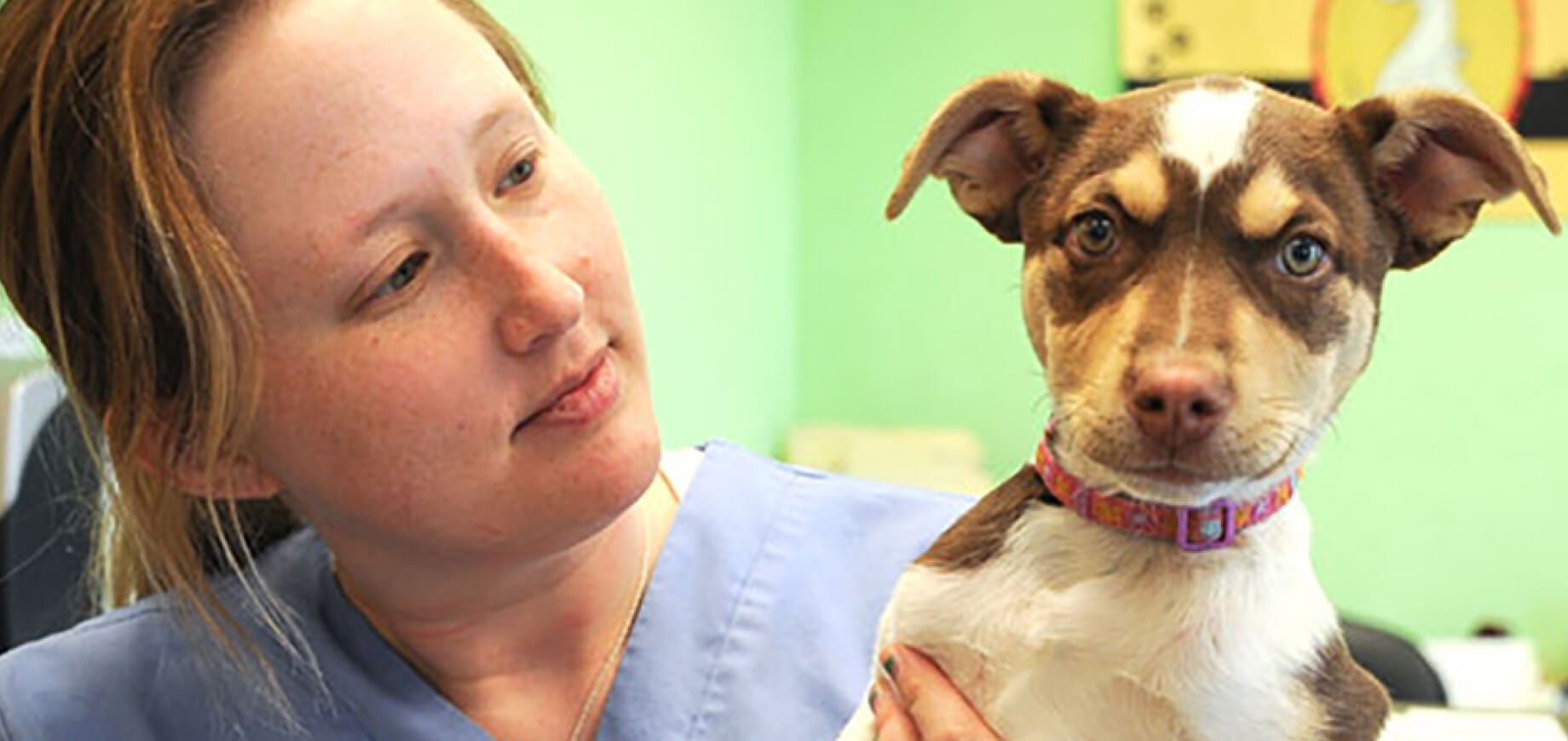Find products that match your dog’s needs

Taking care of a puppy does not only include feeding it healthy food, playing with it, or buying it new toys. Getting your puppy vaccinated and being aware of your puppy’s vaccination schedule is also extremely important. Vaccinations provide the required immunity to puppies in order to fight off infectious diseases. Vaccines for puppies contain antigens that resemble the disease-causing bacteria or virus but do not cause the disease.
You need to immunise your puppy to give its body the power to fight diseases. Puppy vaccinations help in building your fur baby's immunity to prevent itself from contracting diseases later in life. Vaccinations stimulate the body to recognise disease-causing germs or viruses. So, if your dog contracts the disease it is vaccinated against, its immune system will recognise and fight the foreign body to reduce its ill effects.
Puppy vaccinations should be given to your pet when they are six to eight weeks old. It is also advisable to keep in touch with your dog’s vet regarding the vaccination schedule that is tailored to fit your dog. Take a look at the table issued by the WSAVA Organisation below that provides detailed information about your puppy’s vaccination schedule:
| Vaccination | Puppy’s age |
| Canine Parvovirus-2, Canine Distemper Virus, Recombinant Canine Distemper Virus, Canine Adenovirus-2, CPV-2, Canine Adenovirus-1 | Administer at 6-8 weeks of age, then to be given every 2-4 weeks until the dog turns 16 weeks or older |
| Rabies | One dose at 12 weeks of age. If the first shot is given before 12 weeks, then the puppy should be revaccinated again at 12 weeks. |
| Parainfluenza Virus | Administer at 6-8 weeks of age, then to be given every 2-4 weeks until the dog turns 16 weeks or older |
| Bordetella bronchiseptica, B. bronchiseptica + CPiV intranasal, B. bronchiseptica +CPiV (MLV) +CAV-2 (MLV) intranasal | First single dose to be administered at as early as 3 weeks of age |
| B. bronchiseptica | Can be given at 8 weeks of age |
| Bordetella bronchiseptica, Bordetella bronchiseptica | First dose to be administered at 6–8 weeks of age and one dose at 10-12 weeks of age |
| Borrelia burgdorferi (Lyme borreliosis; killed whole bacterin, parenteral), Borrelia burgdorferi (rLyme borreliosis) (recombinant-Outer surface protein A [OspA], parenteral) | First dose when your dog turns 12 weeks or older. Second dose is given 2-4 weeks later |
| Leptospira interrogans | First dose when your dog turns 8 weeks or older. Second dose is given 2-4 weeks later |
Canine influenza virus Canine Coronavirus | Two doses 2-4 weeks apart with the first dose at >6 weeks of age. |
| Vaccinations for puppies at shelter homes | |
CDV + CAV-2 + CPV-2 rCDV + CAV-2 + CPV-2 with or without CPiV Parenteral | To be administered immediately upon admission in the shelter at 4 weeks of age. To be repeated every 2 weeks until the dog is 20 weeks old and still at the shelter |
| Bordetella bronchiseptica, B. bronchiseptica + CPiV, B. bronchiseptica +CPiV, B. bronchiseptica | To be administered as early as 3 weeks of age. If the first dose is given at the 6th week, then an additional dose to be given after 6 weeks |
| Bordetella bronchiseptica | One dose at the time of admission at 6-8 weeks of age and 2nd dose 2 weeks later |
| Rabies | Single dose to be administered at the time of discharge from the facility |
Boosters are given to adult dogs, and they are usually administered every year. If you are unsure whether your dog requires a booster shot, you can also get a titer test to determine the same. This test checks your dog’s immunity levels and can help you determine whether your dog needs any vaccination or what type of vaccination must be administered. The test does not apply to the rabies vaccine. You will have to administer a rabies shot to your dog as per the normal puppy vaccination schedule assigned by the vet.
As a puppy owner, your little furry friend relies on you and looks up to you. So, if you start panicking or stressing out before the vaccination appointment, your puppy may also reflect the same negative behaviour. So, you should remain calm and talk to your pup in a soft tone to ensure it stays relaxed.
You may have to get your puppy accustomed to vehicular rides before the scheduled date of vaccination. Make sure you add a carrier in your vehicle for the puppy to remain comfortable throughout the ride to the vet.
Avoid feeding your puppy a heavy meal before the vaccination. You may provide your puppy with treats to encourage calm and good behaviour on the way as well.
You may also use calming synthetic pheromones to make sure your puppy is relaxed throughout the way. Talk to the vet to know more about how you can ease your puppy before a vaccination. The vet will issue proper guidelines for the same.
Provide your puppy with a cosy and warm place to rest. You can also allow them to choose their own preferred place where they feel comfortable to rest.
Give your puppy access to water and its favourite food but do not worry if it does not feel as hungry as it generally does.
Avoid cuddling or even patting your puppy's head. It might prefer being alone for a while and that's completely normal.
Keep checking on your puppy multiple times a day but avoid disturbing it.
Vaccines for puppies also cause some short-term side effects like they do in humans. Here are some of the commonly noted symptoms post vaccinations:
Your puppy should receive the following core vaccines:
Canine Parvovirus, Canine Distemper, Canine Adenovirus and Rabies. Your puppy’s vet may add additional vaccines like Parainfluenza and Leptospirosis.
Vaccines for puppies should be given when they are is 6-8 weeks old.
You may need to ask your vet for the exact number of vaccines needed. Puppies generally have to be taken for their regular immunizations from the time they are 6-8 weeks old until they become 12-16 weeks old. These vaccines are scheduled every 3-4 weeks.
Your puppy should receive the following core vaccines:
Canine Parvovirus, Canine Distemper, Canine Adenovirus and Rabies. Your puppy’s vet may add additional vaccines like Parainfluenza and Leptospirosis.
Cocktail vaccines vary depending on the manufacturer and discretion of the vet.

Find a PEDIGREE® stockist
near you!
Buy online
Click to buy from any of the retailers below

